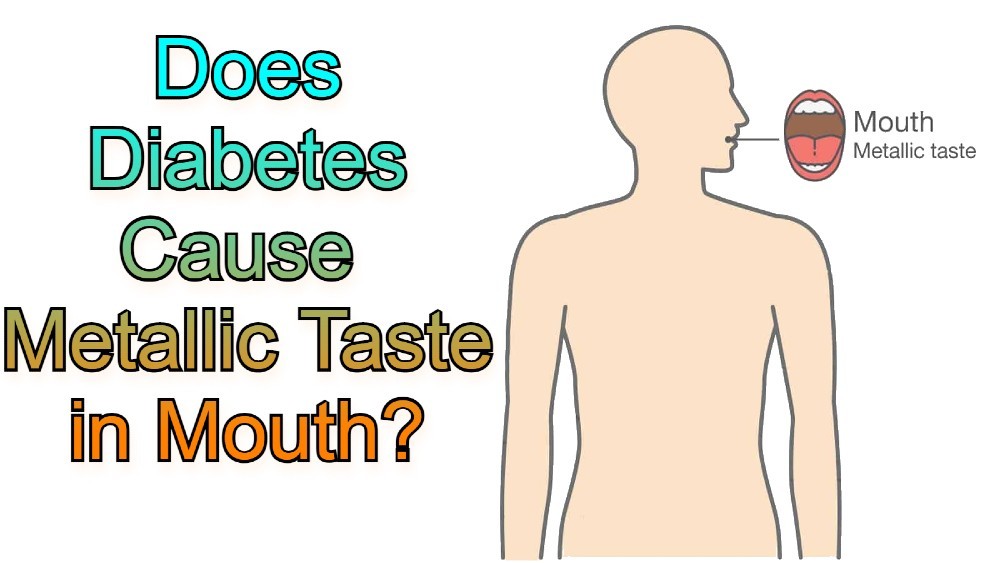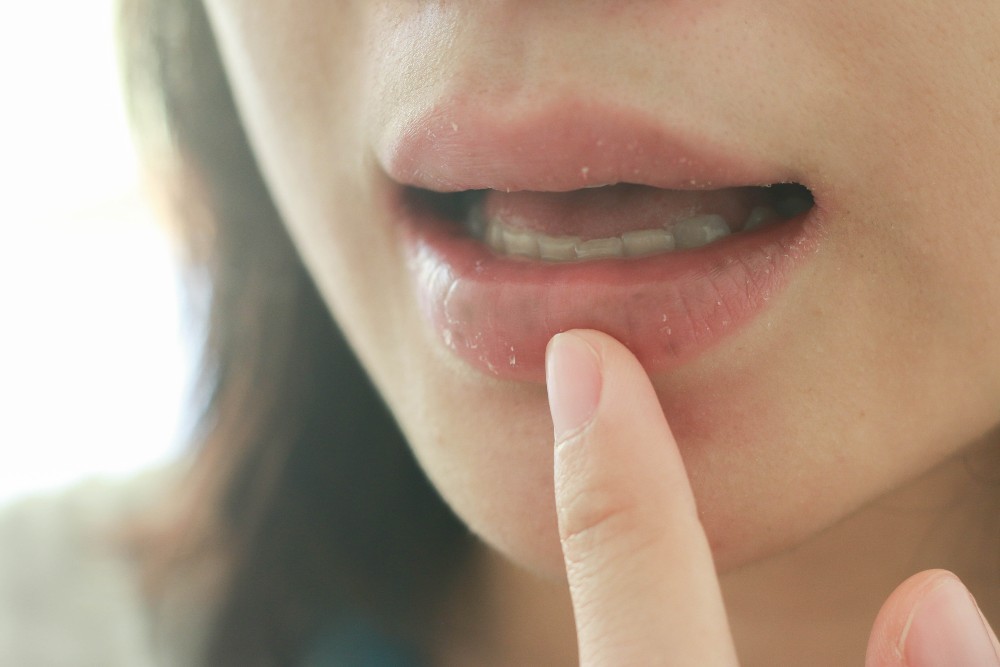Last updated on July 18th, 2023
You should take care of type 2 diabetes at the starting itself before it deteriorates your health. When you have diabetes, your tongue starts to taste metallic, and you will find it difficult to taste food. Not just that, but insulin resistance will make it difficult for you to lead an everyday life. Read this blog to know about reasons for metallic taste in mouth due to diabetes.
Many people diagnosed with diabetes don’t know they have the disease. However, it is continuously rising due to the aging of the population, the increase in obesity, and the sedentary lifestyle.
A disorder characterizes diabetes in how insulin works. In type 2 diabetes, the hormone is produced. Still, it is not compelling enough: the body is resistant to it, and the sugar remains in the blood, leading to the possibility of a multitude of complications.
Diabetes can also affect the retina or peripheral nerves, such as those in the foot, causing loss of feeling. Therefore, if one is injured and the blood circulates less well, healing will be more difficult, becoming the door open to infections of all kinds and, possibly, to amputation as a last resort.

Reasons For Metallic Taste in Mouth Other Than Diabetes
Summary
Sometimes, if you have a metallic taste in your mouth, it may also be a minimal issue like oral hygiene. Therefore, there is no need for you to panic. But it is always better to go to a hospital and get a check-up on your vitals to verify.
Having diabetes and bad taste in the mouth is very ordinary, and in case you are moderately solid, it is usually nothing to surrender about. Since taste is connected to your feeling of smell, diseases that influence it or your taste buds are regularly the offenders, including sinus contamination, drug incidental effects, and food hypersensitivities. Although rarer, there are also possible more serious causes, including dementia, diabetes, and kidney failure.
Medicines and Vitamins
Summary
Tate disorder is one of the most common complaints we get from patients when they have diabetes. And when you feel your mouth is salty, then you might want to get a quick check-up from your doctor because it suggests a chronic taste disorder that comes with worsening in your diabetic condition.
Also Read: Contour TS Blood Glucose Monitor: Know How to Use Contour Test Kit
Several drugs used regularly can create a salty taste in mouth in diabetes as they associate with taste bud receptors in the brain. Residual drugs in saliva can also lead to it.
Some standard drug culprits include:
- Antibiotics, including metronidazole
- Antidepressants or antipsychotics
- Antihistamines
- Antifungal drugs
- Medicines for hypertension
- Chemotherapy drugs
- Treatments for diabetes, including metformin
- Diuretics
- Glaucoma medications
- Nicotine patches
- Osteoporosis drugs
- Radiation drugs
- Medicines for seizures, including phenytoin
Sinus Problems
Summary
The edema of the nasal lining is one of the symptoms of diabetes. That is due to a lowering in your blood sugar levels. So, if you face the issue anytime, you should start taking care of yourself more carefully. People who poorly manage their diabetic health run a higher chance of sinus infection, and the consequences will be catastrophic.
Conditions such as the common cold, sinusitis, upper respiratory tract infections, acute or chronic sinus infections, turbinate enlargement, deviated septum, middle ear infection, diabetes, and sinus congestion can cause abnormalities in your sense of smell and, after that, to your liking.
Specific allergies, particularly tree pollen, can also cause sinus problems and a metallic taste in the mouth. These problems are usually treated with antibiotics, by treating underlying allergies, or by surgery. Once your sinus issues are resolved, the metallic taste in your mouth will also go away.
Diabetes and Dry Mouth
Summary
Dry mouth is a consequence of diabetes. Some medications that you use to cure diabetes may be responsible for that. There is no severe concern precisely due to dry mouth, but it will indeed be helpful if you try to lead a healthy lifestyle and take care of your health.
Dry mouth is the terminology applied to describe a deficiency of moisture in the mouth, which can be created by diabetes and its symptoms.
This symptom is not trivial because saliva plays a vital role in the mouth by controlling bacteria levels and neutralizing and washing away acid deposits.
Besides causing a disgusting feeling and distress, a nasty taste in mouth diabetes dry mouth can also present a breeding ground for bacteria.
It is essential to minimize the risk of oral or dental infection, as this can raise blood sugar levels as the body tries to fight the disease.
The following characters can also characterize the symptom of dry mouth:
- An increase in the number of cavities,
- Irritation in the corners of the mouth,
- Inflammation of the gums (gingivitis),
- Yeast infections on the tongue, cheeks, and palate.
Having chronic hyperglycemia is a common reason for dry mouth in people with diabetes. Dry mouth might also be caused due to the side effect of diabetes medication. In addition, drugs to control blood pressure and prevent heart disease are also responsible for the symptom of dry mouth. These two conditions are often correlated with diabetes.
Note that people with diabetes are more prone to dehydration and that one of its effects is dry mouth.
Also Read: Gluformin Tablet – Uses, Side Effects, Dosage & Interactions

Ways Diabetes Can Affect Your Mouth
Summary
Taking into consideration the reasons, we can say that one of the core consequences of having diabetes is gum and mouth tissues. It can be gum infection with a symptom of bleeding gums or a dry mouth as a whole that affects your taste buds. But all in all, a mouth infection can be catastrophic. Therefore, we recommend that you make sure your diet and exercise are on point to avoid it.
Many people ask does diabetes cause tongue problems, diabetes, in reality, can be fatal for your entire body, as it can also amplify the risk of dental disease and other ailments that might manifest in your mouth. One out of five cases of total tooth loss is caused due to diabetes.
The great news is that you can take command of your health now. Keeping your blood sugar in check, regular flossing and brushing, and visiting the dentist frequently can do a lot to help reduce the chance of developing these diabetes-related mouth problems.
Do you notice blood coming out of your mouth when you brush or floss? It could be an initial symptom of gum infection. If it becomes severe, the bone that supports your teeth can break, leading to tooth loss. You can reverse early gum disease with brushing, flossing, and diet. Studies indicate that it can worsen if your blood sugar levels are not controlled, so do your best to manage them.
Studies show that people diagnosed with diabetes produce less saliva, so as a result, they may feel dry or very thirsty. (Medicines and high sugar levels are also the causes.) Combat dry mouth by drinking water, chewing sugar-free gum, and eating crunchy, healthy foods to keep saliva flowing. This is especially significant because the extra sugar in your saliva, blended with less saliva that washes away food, can lead to cavities.
Your favorite flavors might not taste as good as you remember them if you have diabetes as one of diabetes symptoms bad taste in mouth. It might not be very pleasant, but give yourself a chance to experiment with different tastes, textures, and spices in your favorite food. Just be careful not to add too much sugar to your food to flavor it. Not only can it affect the quality of your diet, but it can also lead to more cavities. If the bad metallic taste persists for a long time in your mouth, visit your dentist or doctor.
Diabetes affects your immune system, making you more vulnerable to infection. Fungi develop due to the high amount of sugar in saliva, and a white coating appears on the tongue and inside the cheeks. A canker sore is more prevalent in people who wear dentures, and it often bequeaths a bad taste in the mouth. Visit the dentist if you think you have an oral yeast infection or another infection.
Also Read: Xigduo 5mg / 1000mg Tablet Uses, Side Effects, Dosage & Interactions
Tips to Improve Metallic Taste in Mouth Due to Diabetes
- Thanks to the anti-inflammatory qualities of salt, using saltwater mouthwashes is very efficient in healing the gums and killing bacteria in the mouth. Saltwater mouthwashes also help to unclog the nose and reduce inflammation in the mouth.
- It is recommended to brush your teeth and tongue 2-3 times a day and then gargle with mouthwash to eliminate microorganisms.
- You can use a small amount of baking soda and salt on your toothbrush to kill any germs.
- Drinking between 7 and 8 glasses of water a day will help keep your body clean and hydrated. This will prevent dry mouth.
- If possible, maintain your blood sugar level at the levels recommended by the doctor.
When to Worry About Diabetes Metallic Taste
A metal taste in the mouth usually goes away when the cause is temporary, such as pregnancy or taking certain medications. It also disappears when the cause is identified and treated, in the event of an oral problem, for example. If the flavour of iron in the mouth perseveres and converts disabling daily or if it is associated with other symptoms, it is essential to consult a doctor, a dentist or a specialist so that he can make a diagnosis, prescribe additional analyzes and, if necessary, an adapted treatment to solve the problem. If the diabetes and bitter taste in mouth persists for several days or weeks or is accompanied by other symptoms such as fever or pain, the attending physician, dentist, stomatologist, or ENT specialist should be consulted as soon as possible.
Also Read: Embracing A Healthier Lifestyle
FAQs:
How to get rid of metallic taste from mouth?
Ways to get rid of metallic taste from mouth include stay hydrated, brush your teeth after meals, chew sugar free chewing gum, and avoid smoking, etc.
Why do I experience metallic taste in mouth?
When kidneys do not function properly due to diabetes waste build-up can happen in the body. Metallic taste in the mouth can be a side effect of it.
When to see the doctor?
If you have discomfort, burning or pain in the tongue, lips, gums, or other areas of your mouth, consult your doctor or dentist.
When should I start to worry?
You should see your doctor if you notice that the alterations in the sense of taste persist over time or if they are accompanied by other symptoms.
Is taste of metal in the mouth is permanent?
The metallic taste is quite unpleasant but it does not cause health problems, since it is temporary or is easily resolved.
References:
- https://health.clevelandclinic.org/8-possible-causes-for-that-metallic-taste-in-your-mouth/
- https://www.diabetesselfmanagement.com/blog/diabetes-taste-disorders/
- https://www.express.co.uk/life-style/health/1121800/diabetes-type-2-symptoms-high-blood-sugar-signs-bad-taste
- https://www.medicalnewstoday.com/articles/313744
Last Updated on by Dr. Damanjit Duggal
Disclaimer
This site provides educational content; however, it is not a substitute for professional medical guidance. Readers should consult their healthcare professional for personalised guidance. We work hard to provide accurate and helpful information. Your well-being is important to us, and we value your feedback. To learn more, visit our editorial policy page for details on our content guidelines and the content creation process.

 English
English

















